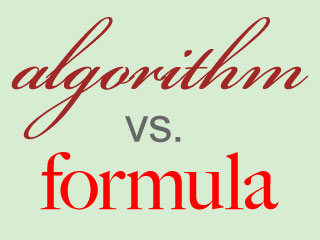 There is tension. A friend strongly advocates the use of plain language in communicating. I tend to agree. In fact, there is a whole movement around this idea.
There is tension. A friend strongly advocates the use of plain language in communicating. I tend to agree. In fact, there is a whole movement around this idea.
When I’m writing for this blog or for work, I always try to use words that communicate the most simply. Why use flowery words when plain words will communicate faster?
Heather and I received ballots from our local government for a small election issue. The ballot was worded by lawyers (who are not known for plain language). It was not understandable by either of us. (Heather has a master’s degree, and I have completed three courses towards one, so we’re not dumb.)
Back to the tension… my sister Sharon says that this movement is “dumbing down” America. Her profession lies in the health care field, and she feels many important details are lost when problems are explained to patients. This is true in many other professional realms.
Which side do you fall on?

I am also in a healthcare profession, and I struggle with matching the technical language of what’s happening to people with the pragmatic language they can understand. I resist the urge to speak to the lowest common denominator. I have to believe that straightforward diction needn’t be dumb. There is tension, indeed.
Isn’t this a question of knowing your audience? I’m not teaching Liam (age 5) pre-algebra like I am Aidan (age 13). Liam is doing phonics where Aidan is diagramming sentences. If I want to communicate clearly and articulately I must know with whom I am speaking. “Dumbing-down” maybe what it is but it’s also what we all must do (if we are a professional) to communicate with someone outside our field of expertise.
You both touch on key points. And I agree with both of you.
One of my struggles is with language that is unnecessarily complicated (as in the ballot). That’s a key area where improvements could be made.
But then, don’t get me started on lawyer-ese. Just one example – I think of the millions of sheets of paper that are wasted on drug disclosure notices in Reader’s Digest, for example. (My solution would be simple – “This drug has been shown to be harmful in some instances. Read the full information on the drug package before consuming.”)
I think there’s a difference between making something more complicated than it need be, and explaining something that is complicated in simple language. With medical stuff it may be necessary to use longer sentences to avoid jargon words that are useful for those who have to say things like that all the time. It also may take a lot of sentences because it’s a complicated situation.
I appreciate the expansion on that line of thinking, Paul. Avoiding jargon is central to the concept of making communication understood.
Christians (at least in North America) have been some of the worst offenders in this area.
About 30 years ago when I lived in KS, there was an item on the ballot that I just plain couldn’t understand, so I voted against it. I discovered later that it was a proposal that would have required future ballot items to be written in plain English!
My sisters wrote my Dad’s eulogy, and we took turns reading portions of it aloud during the services. I hated the part assigned to me, though, because it obviously had not been written to be read aloud. I did some paraphrasing to smooth it out. I usually write in a more oral style rather than using complex constructions.
Here’s a sampling:
An affectionate, intelligent child, he developed a warm bond with his mother, who loved him deeply—and her mental health struggles, which erupted when he was eight and continued for the rest of her life, marked his psyche profoundly.
…
When he was nineteen, his older sister Sigrid told him of her recent encounter with Jesus Christ and invited him to receive forgiveness and reconciliation with God through her new Lord. Paul decided to say yes—a decision that likewise marked his psyche profoundly, but this time with hope, healing, and a new sense of meaning.
See what I mean? Nice writing, but not the way you would talk.
You hit on something that is reality these days – there are so many forms of English to use – just within corporate USA…
Oral, Formal written, informal written, texting, twitter, facebook – to name just a few. Each of those has its own set of often unwritten rules.